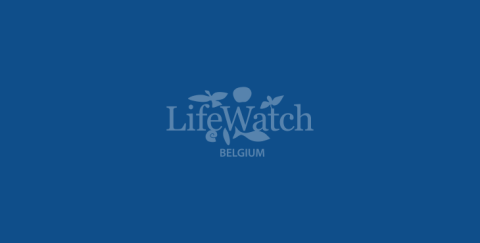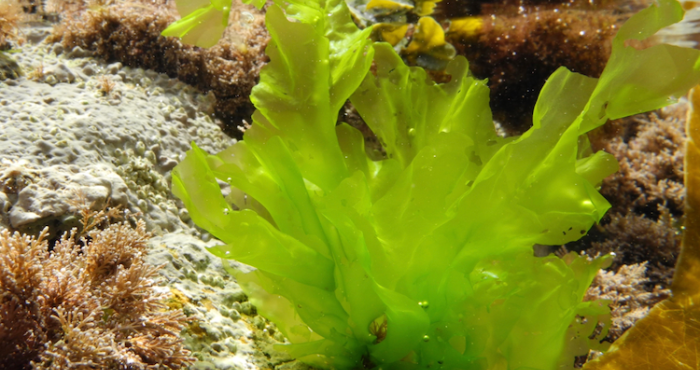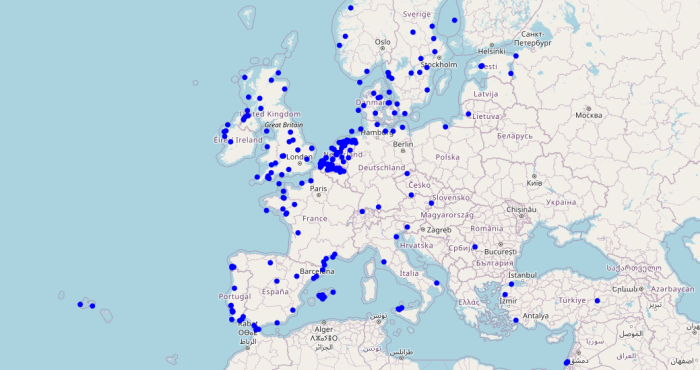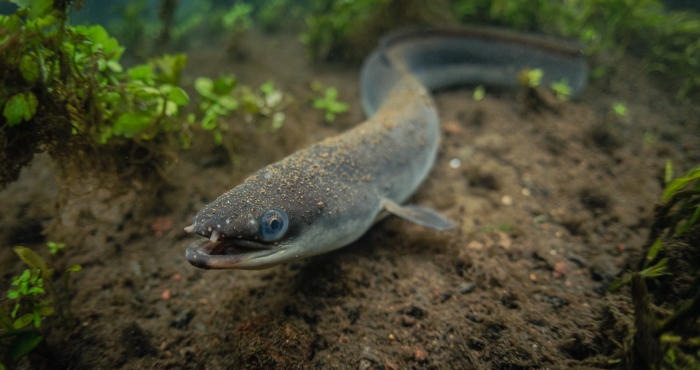LifeWatch support in 2014 made it possible to make WoRMS more complete
In 2014, LifeWatch funded several activities directly leading to the improvement and further completion of the World Register of Marine Species. LifeWatch has invested in data grants, meetings and workshops, leading to the addition of more than 7.600 new names to WoRMS, a revision of almost 19.000 names and the development of new portals and tools, helping the user and editor community in accessing and utilizing WoRMS.

LifeWatch is the E-Science European Infrastructure for Biodiversity and Ecosystem Research. It is a distributed virtual laboratory which is being used for different aspects of biodiversity research.
The Taxonomic Backbone of LifeWatch aims at bringing together taxonomic and species-related data and at filling the gaps in our knowledge. In addition, it gives support to taxonomic experts by providing them logistic and financial support for meetings and workshops related to expanding the content and enhancing the quality of taxonomic databases. As WoRMS is a major player in this Taxonomic Backbone, funds were made available during 2014 to support the further development of WoRMS and its related databases, both on the content and technical level.
Early 2014, a call for applications for small, targeted data grants to fill the taxonomic gaps was launched. Through the LifeWatch project, a dedicated budget was made available to allow editors to apply for a such a small grant, with a focus on completing an verifying the taxonomic information within their group of expertise. For groups that were already nearing completion, a grant could be requested to document e.g. the original descriptions, add information on type localities or focus on the addition of synonym names.
In total, 16 LifeWatch grants were assigned covering a wide taxonomic variety: Mollusca, Gastrotricha, Polychaeta, Hirudinea, parasitic Nematoda, Pisces, Echinodermata, Copepoda, Isopoda and Digenea. Through these grants, 6.778 new names could be added to WoRMS and a taxonomic revision of 18.947 names already in WoRMS has been made. In addition, 1.843 references of original descriptions were added. An overview of these data grants – with their goals and a final report – is available through the WoRMS website (www.marinespecies.org/activities.php).
Through the financial support of LifeWatch, the creation of a World Register of Introduced Species (WRIMS) has been initiated: www.marinespecies.org/wrims. This portal has been developed in collaboration with members of the IUCN Invasives Species Specialist Group (ISSG), and is currently being maintained through a joined effort by alien experts and the Data Management Team. The portal gives access to all the marine alien species worldwide, together with relevant information on their provenance, invasiveness and occurrence.
Early 2014, LifeWatch funds made it possible for Mollusca-experts from all over the world to meet in Oostende, to discuss the development of a MolluscaBase portal. The goal of MolluscaBase is to be a global species database, covering all marine, freshwater and terrestrial Molluscs, both recent and fossil. The meeting offered the opportunity to work out the details on to accomplish this, including strategies on possible collaborations with other initiatives and inviting new editors.
A small-scale workshop related to the fossil information in WoRMS was also sponsored by LifeWatch. During this workshop, the visualization, standardization and functionalities of the fossil data was discussed in detail, which will lead to improvements on both the user and editor interface.
All of the above mentioned work was supported by staff members provided by the Flanders Marine Institute (VLIZ) as part of the Flemish contribution to LifeWatch and is funded by the Hercules Foundation.
See also: http://www.lifewatch.be/en/worms-stats
The Taxonomic Backbone of LifeWatch aims at bringing together taxonomic and species-related data and at filling the gaps in our knowledge. In addition, it gives support to taxonomic experts by providing them logistic and financial support for meetings and workshops related to expanding the content and enhancing the quality of taxonomic databases. As WoRMS is a major player in this Taxonomic Backbone, funds were made available during 2014 to support the further development of WoRMS and its related databases, both on the content and technical level.
Early 2014, a call for applications for small, targeted data grants to fill the taxonomic gaps was launched. Through the LifeWatch project, a dedicated budget was made available to allow editors to apply for a such a small grant, with a focus on completing an verifying the taxonomic information within their group of expertise. For groups that were already nearing completion, a grant could be requested to document e.g. the original descriptions, add information on type localities or focus on the addition of synonym names.
In total, 16 LifeWatch grants were assigned covering a wide taxonomic variety: Mollusca, Gastrotricha, Polychaeta, Hirudinea, parasitic Nematoda, Pisces, Echinodermata, Copepoda, Isopoda and Digenea. Through these grants, 6.778 new names could be added to WoRMS and a taxonomic revision of 18.947 names already in WoRMS has been made. In addition, 1.843 references of original descriptions were added. An overview of these data grants – with their goals and a final report – is available through the WoRMS website (www.marinespecies.org/activities.php).
Through the financial support of LifeWatch, the creation of a World Register of Introduced Species (WRIMS) has been initiated: www.marinespecies.org/wrims. This portal has been developed in collaboration with members of the IUCN Invasives Species Specialist Group (ISSG), and is currently being maintained through a joined effort by alien experts and the Data Management Team. The portal gives access to all the marine alien species worldwide, together with relevant information on their provenance, invasiveness and occurrence.
Early 2014, LifeWatch funds made it possible for Mollusca-experts from all over the world to meet in Oostende, to discuss the development of a MolluscaBase portal. The goal of MolluscaBase is to be a global species database, covering all marine, freshwater and terrestrial Molluscs, both recent and fossil. The meeting offered the opportunity to work out the details on to accomplish this, including strategies on possible collaborations with other initiatives and inviting new editors.
A small-scale workshop related to the fossil information in WoRMS was also sponsored by LifeWatch. During this workshop, the visualization, standardization and functionalities of the fossil data was discussed in detail, which will lead to improvements on both the user and editor interface.
All of the above mentioned work was supported by staff members provided by the Flanders Marine Institute (VLIZ) as part of the Flemish contribution to LifeWatch and is funded by the Hercules Foundation.
See also: http://www.lifewatch.be/en/worms-stats



